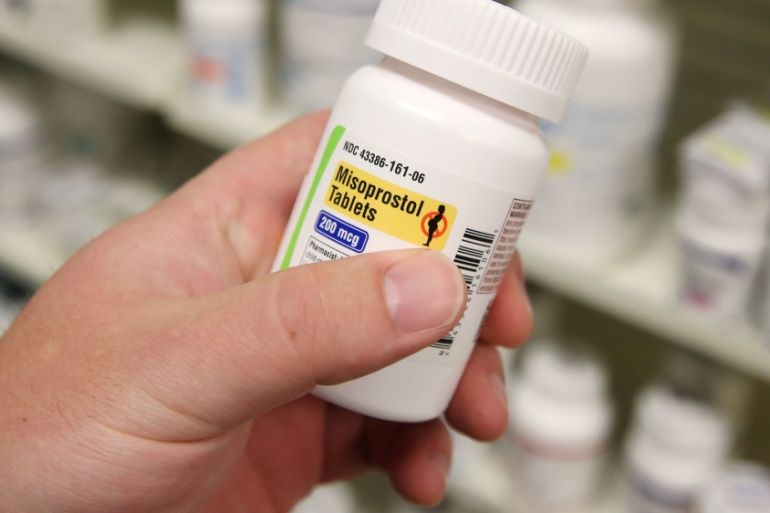White House changes course on how to cut prescription costs
By ditching rebate plan drug companies favoured, Trump signals new willingness to take on manufacturers directly.

The administration of United States President Donald Trump has scrapped one of its most ambitious proposals for lowering prescription drug prices, backing down from a policy aimed at health insurers but raising the possibility of new measures focused more squarely on drugmakers.
Thursday’s decision represents a setback of sorts for Trump’s efforts to deliver on a pledge to lower the cost of medicines for consumers before the November 2020 election, when Republicans want to capitalise on voter concern over high healthcare costs.
Keep reading
list of 4 itemsWoman, seeking loan, wheels corpse into Brazilian bank
UK set to ban tobacco sales for a ‘smoke-free’ generation. Will it work?
Poland lawmakers take steps towards liberalising abortion laws
The abandoned plan would have required health insurers to pass billions of dollars in rebates they receive from drugmakers onto Medicare patients.
“Based on careful analysis and thorough consideration, the President has decided to withdraw the rebate rule,” White House spokesman Judd Deere said in an emailed statement.
Companies like Cigna Corp and CVS Health Corp – which negotiate rebates with drugmakers on behalf of the government’s Medicare programme – will be able to continue to benefit from those discounts.
‘Feels like payback’
The rebate rule would have forced companies either to forgo the discounts or pass them onto patients enrolled in their health insurance plans and drug plans.
Shares of Cigna rose nine percent, CVS gained five percent and UnitedHealth Group Inc was up six percent.
Meanwhile, pharmaceutical company shares fell for the day, with Merck Co off four percent, Bristol-Myers Squibb Co down three percent, and Pfizer Inc off two percent.
Baird analyst Eric Coldwell told the Reuters news agency that Trump was likely refocusing his reform efforts on the pharmaceutical companies themselves.
“There are still many headwinds for the supply chain,” he said, adding that “pharma and biotech seem to have drawn the ire of the administration more recently”.
Coldwell noted the industry’s successful legal challenge of a rule that would have required drugmakers to include list prices in television advertisements for their medicines.
“Shelving the rebate reform initiative, which pharma strongly supported, feels like payback,” Coldwell added.
‘Encourage greater competition’
Trump first floated the idea of ending the rebates last year as part of a drug pricing “blueprint” aimed at bringing down costs.
Several Democratic presidential hopefuls have also seized on drug pricing as a key issue for the 2020 elections. Legislators, including House Speaker Nancy Pelosi, are pushing for new laws to allow the government to negotiate drug prices directly with manufacturers.
A senior administration official, speaking on condition of anonymity, told Reuters the rule was too costly and would have hurt chances for bipartisan legislation.
“It was not prudent to go forward with the rule right now,” said the official, adding that it would be risky and could upset a legislative deal.
Insurance companies argued that the rebates would have forced them to raise monthly premiums. They were pressing the administration to concentrate on drugmakers and consider the overall impact on Medicare, which includes people aged 65 and older and people with disabilities.
“Only drug manufacturers have the power to set drug prices,” said a statement from JC Scott, chief executive of the Pharmaceutical Care Management Association – which lobbies on behalf of pharmacy benefit managers. “We believe that the key to lowering drug costs is to enact policies that encourage greater competition.”
PhRMA – the main pharmaceutical industry lobby group that represents drug manufacturers – disagreed, saying in a statement that the move by the Trump administration, unfortunately, ended the only government proposal that would have provided immediate savings at the pharmacy counter for patients.
‘Unintended windfall profits’
The Trump administration is still considering a proposed rule that aims to bring some US drug prices in the Medicare programme in line with lower prices paid by other countries.
US Department of Health and Human Services Secretary Alex Azar said on Thursday that Americans overpay for medicines, when compared with socialist European systems. Most European countries pay for citizens’ healthcare and directly negotiate drug prices.
Azar also said that he and Trump – who reportedly disagreed over the rebate rule – are working on allowing the importation of cheaper drugs from other countries, a move Trump has apparently endorsed but which drugmakers have long opposed.
The rebate rule was estimated by the nonpartisan Congressional Budget Office to cost the government $177bn over the next 10 years. The CBO also said it was likely drugmakers would not cut their prices because of the rule.
The government had hoped that by eliminating rebates of 15 percent to 30 percent of a drug’s listed price, the prices would fall.
JP Morgan analyst Gary Taylor said in a note that political momentum had been building against the rebate rule “due to the perceived unintended windfall profits that might have accrued to pharmaceutical manufacturers”.